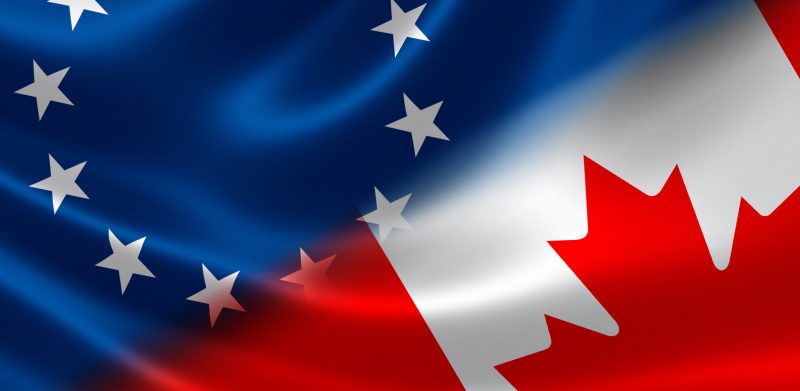
CANADA-UK MOU TO ENSURE CONTINUITY OF CETA FOR THREE MONTHS
As a result of Brexit, the United Kingdom (UK) officially ceased to be a party of the Canada-EU Comprehensive Economic and Trade Agreement (CETA) on January 1, 2021.
As reported in our previous article, Canada and the UK had reached an interim post-Brexit trade agreement, The Canada-UK Trade Continuity Agreement (CUKTCA), which is set to replace CETA to ensure continuity of free trade preferences between Canada and the UK.
Unfortunately, the CUKTCA has not yet been ratified by the Parliaments of both countries.
Therefore, to prevent tariffs on goods and services between the two countries, Canada and the UK announced that they had signed a memorandum of understanding (MOU) ensuring that the benefits of CETA would continue until the CUKTCA could be ratified.
The MOU text is available HERE.
Canada and the UK reached this temporary MOU to continue giving each other’s products preferential tariff treatment. Starting on January 1, this temporary MOU will remain in effect until the Parliaments of Canada and the UK have ratified the CUKTCA. The MOU will expire after three months (unless renewed) if the CUKTCA has not been ratified by that date.
As part of implementing its part of the MOU, Canada has issued the United Kingdom Trade Continuity Remission Order, 2021 #20-1135 (Remission Order). In turn, the Canada Border Services Agency (CBSA) has issued two Customs Notices regarding imports into Canada from the UK after January 1, 2021:
Customs Notice 20-38 provides that, as of January 1, 2021, importers of goods from the UK, the Channel Islands, Gibraltar and the Isle of Man must account for their goods under the regular Most-Favoured-Nation (MFN) tariff treatment (TT2). Goods already in transit to Canada before January 1, 2021 are still eligible for CETA treatment (TT 31). Documentary proof of in-transit movement may be requested by the CBSA, which indicates that the cargo began its uninterrupted journey to a consignee in Canada before January 1, 2021.
The second Customs Notice 20-39 puts into force the MOU for goods shipped to Canada after January 1, 2021. Importers must claim the MFN tariff treatment (TT2), but should also enter “OIC #20-1135” into the “Special Authority” field of Form B3-3 (field 26) to obtain a remission of any duties in excess of those that would have been payable under CETA.
An Origin Declaration is not required for a claim pursuant to this remission order since it is not a claim for preferential tariff treatment. However, please note that the importer is responsible for obtaining and keeping on record documentary proof that supports the claim for remission under the Order. In other words, documents that demonstrate the good would have met the CETA rules of origin.
The CBSA has stated that it will accept documentation from the importer and the exporter in the UK that proves satisfactorily that the good would have met the CETA rules of origin. Meanwhile, the importer who claims the remission is responsible for obtaining documentation in support of his or her claim.
For more information on the CETA tariff treatment and the associated rules of origin, please consult:
The CETA Rules of Origin Regulations
Memorandum D11-5-15 CETA Rules of Origin
If you have any concerns or questions on the Memorandum of Understanding and whether your UK goods are eligible for the United Kingdom Trade Continuity Remission Order, 2021 #20-1135, please contact W2C’s consulting department or your W2C representative.